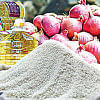Act now to normalise cooking oil supplies

It is concerning to see the shortage of both branded (bottled) and non-branded (loose) soybean oil in kitchen markets, which has caused their prices to spike adding to the frustration of consumers already struggling with high inflation. According to a report published on Friday, retailers and wholesalers in major cities—who claim to be receiving only a portion of their usual supplies—attribute the crunch to oil importers reducing distribution after the government rejected their request last month for a price increase to offset higher import costs. Now, it is ordinary consumers who are having to suffer for it, searching from store to store for soybean oil.
This pattern of shortages leading to artificial price hikes was also observed in late November and early December—before supplies normalised following an official approval of price increase on December 9—and again in late January. When an essential commodity like cooking oil repeatedly vanishes from store shelves only to reappear at a higher price, we must ask: who benefits from this cycle?
Bangladesh heavily relies on imports to meet its annual cooking oil demand of 24 lakh tonnes. Official data shows that the price of bottled soybean oil now stands at Tk 175-176 per litre, reflecting a one percent increase over the past month. Meanwhile, loose soybean oil has seen a steeper rise of nearly four percent in just one week, reaching Tk 180-182 per litre on Thursday. Other edible oils, including palm and rice bran, have also become costlier. For instance, a one-litre bottle of rice bran oil now costs Tk 205-210, marking a 6.41 percent increase in a single day. This pattern of shortages leading to artificial price hikes was also observed in late November and early December—before supplies normalised following an official approval of price increase on December 9—and again in late January. When an essential commodity like cooking oil repeatedly vanishes from store shelves only to reappear at a higher price, we must ask: who benefits from this cycle?
Oil importers and refiners are, of course, largely to blame for the situation. Although the importers our reporter spoke to claimed that their supply remains steady, wholesalers and retailers tell a different story. A senior official at the Bangladesh Trade and Tariff Commission (BTTC) has also described the crisis as "artificially created," as imports are in line with domestic demand. It is likely that a syndicate involving importers and wholesalers is orchestrating the crisis through hoarding to drive up prices ahead of Ramadan, when both demand and prices of staples typically increase. This shouldn't be news to the interim government, which has often warned against price manipulation and twice reduced value-added tax (VAT) on cooking oil—cutting it from 15 percent to five percent—since taking office in August. Why, then, is it failing to prevent such scenarios? If intelligence agencies and monitoring cells are indeed tracking supply chains, why are consumers still facing a shortage?
The government must intervene immediately to normalise supplies and restore stability in cooking oil prices. For that, it is essential to enhance market surveillance and hold importers, wholesalers, and retailers accountable for any deliberate supply disruptions. Strong legal action should be taken against any trader or group found creating artificial crises to extract undue profits.

 For all latest news, follow The Daily Star's Google News channel.
For all latest news, follow The Daily Star's Google News channel. 









Comments